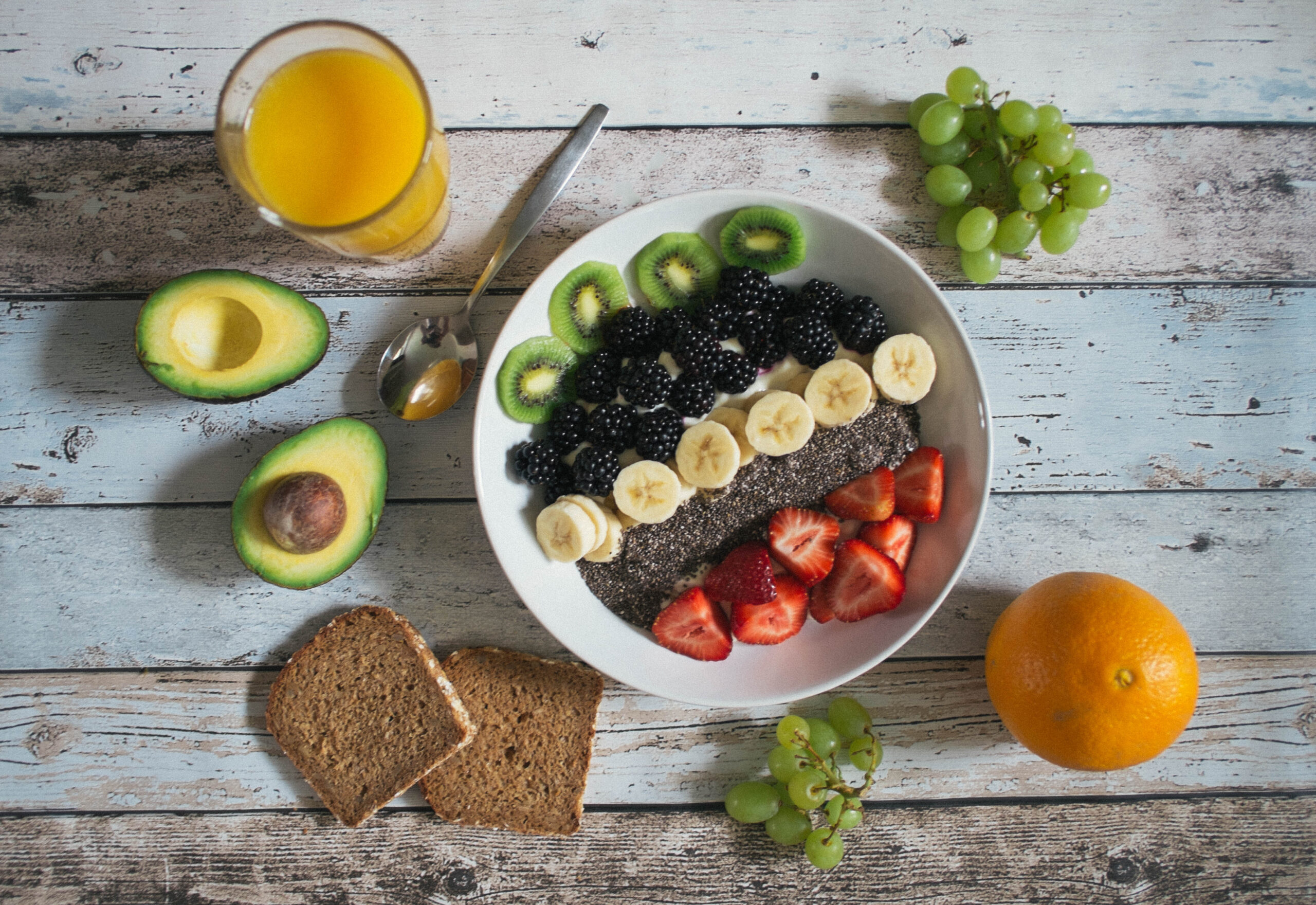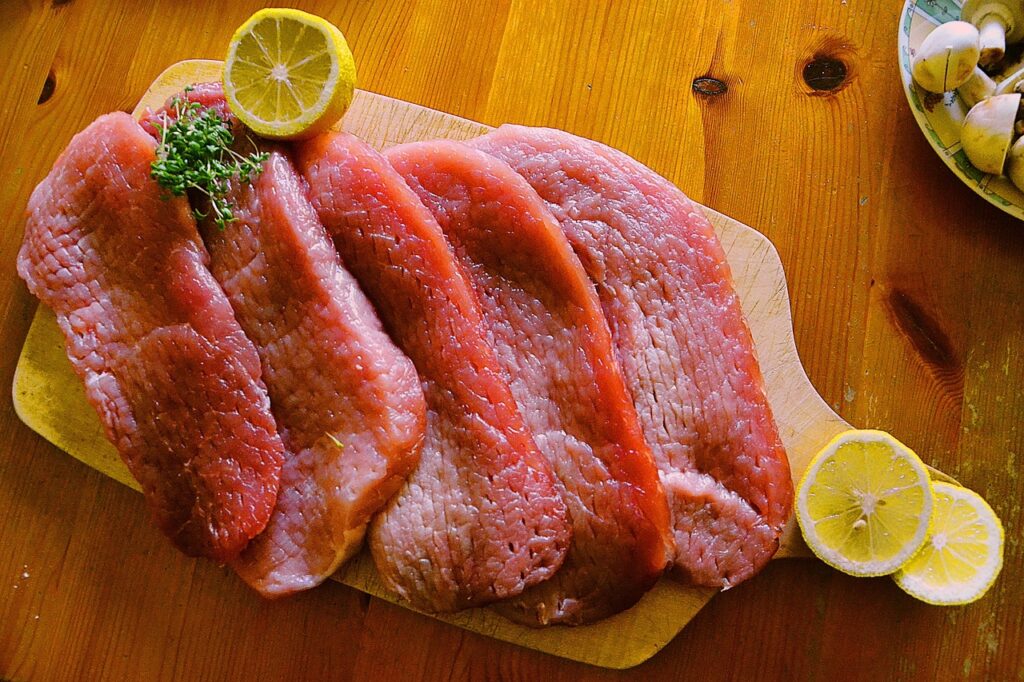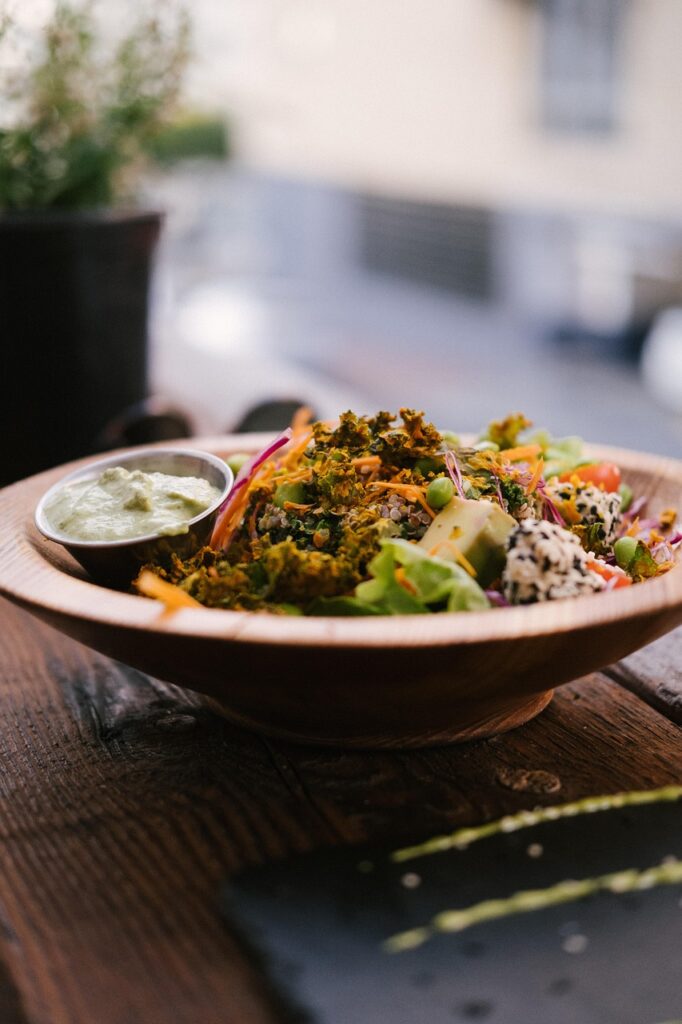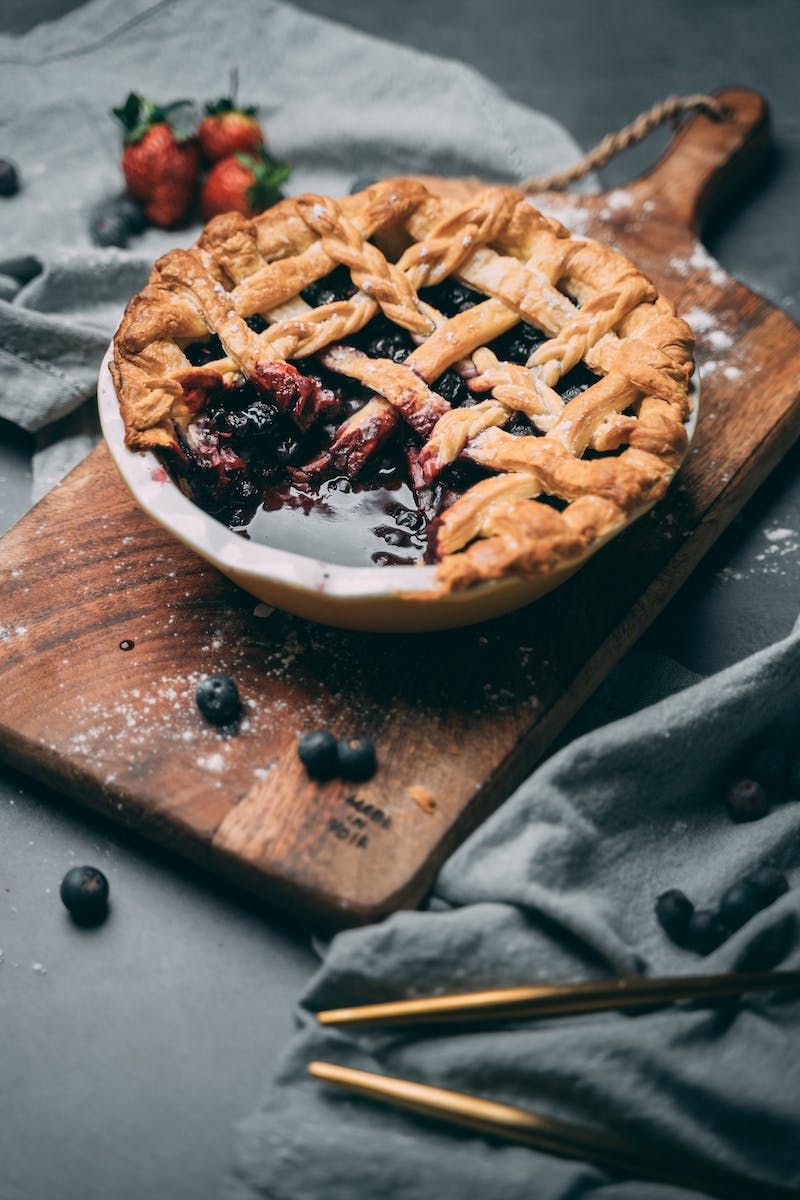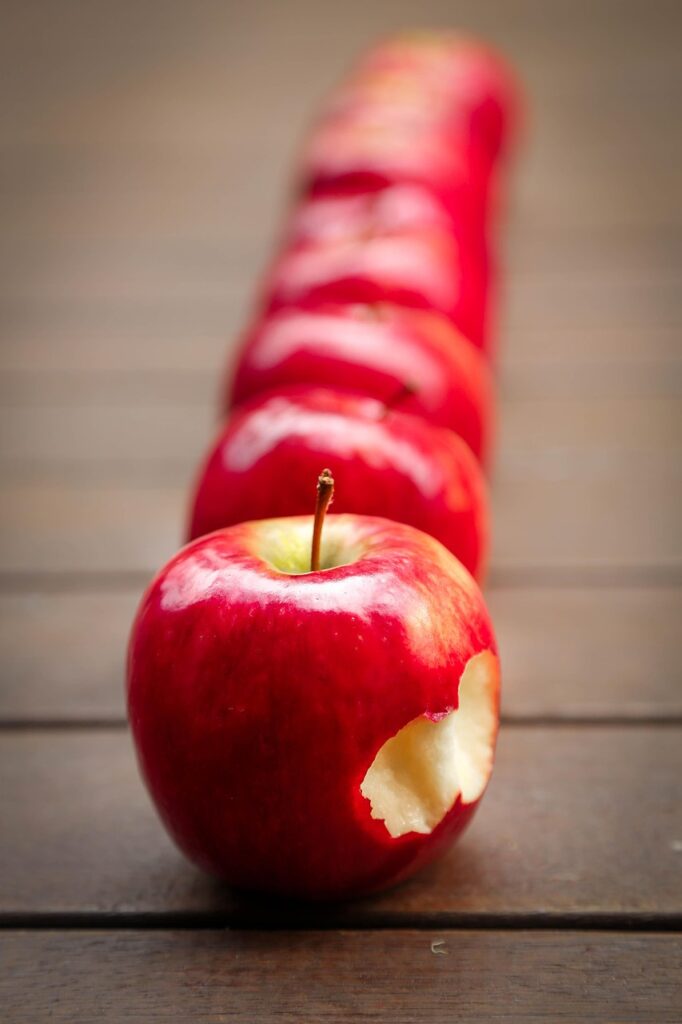
Waking up feeling tired, puffy, or simply uncomfortable is a widespread experience that often leaves us wondering about the root cause. For many, the answer lies in our late-night eating habits. The choices we make before heading to bed can profoundly influence our digestion, the delicate balance of our gut microbiome, and ultimately, the quality of our sleep. It’s a connection more intricate than many realize, with certain foods acting as unwitting saboteurs to our nighttime comfort and morning freshness.
While the topic of late-night snacking itself can be polarizing, with some experts advising against it entirely and others acknowledging its inevitability in our fast-paced lives, one truth remains clear: what you eat matters immensely. If hunger pangs strike, reaching for the right thing is paramount to ensuring you wake up feeling fueled and refreshed, rather than bogged down by acid reflux, bloating, or other digestive woes. Conversely, opting for the wrong foods can transform a peaceful night into one filled with discomfort and disrupted rest, impacting everything from your energy levels to your overall well-being.
To navigate these nocturnal cravings wisely, it’s essential to understand which foods are likely to cause trouble. Drawing on insights from experts like Amy Lobrano, M.D., a gastroenterologist, and Dominique Adair, M.S., R.D., a clinical director, we’ll delve into the specific items that your gut might be asking you to skip. This guide isn’t about rigid restrictions but about making informed, empathetic choices for your body, ensuring your digestive system can wind down properly and you can achieve the restorative sleep you deserve. Let’s uncover the late-night meals and snacks you might want to reconsider for better sleep and digestion.
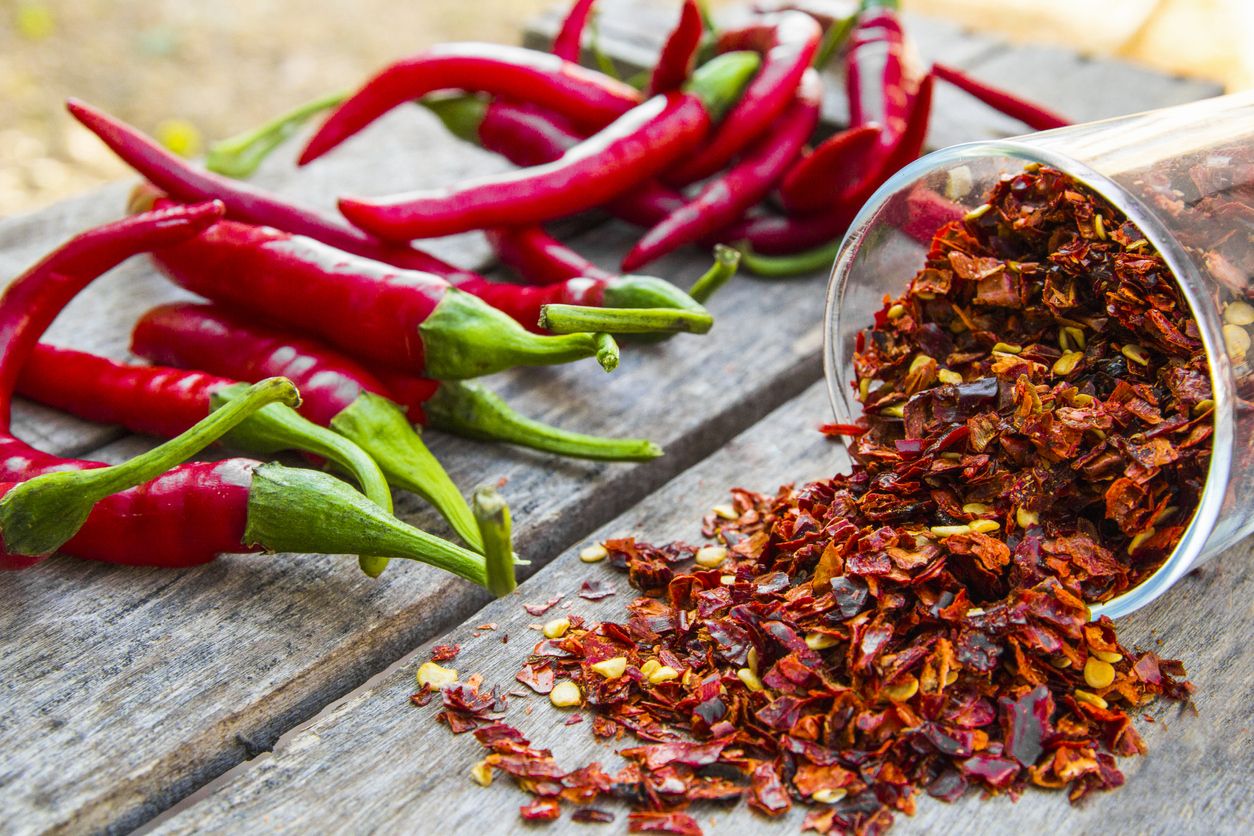
1. **Spicy Foods**Spicy foods, while adding an exciting kick to our meals, are among the top contenders for foods to absolutely avoid before bedtime. Dishes loaded with hot peppers or strong spices can be particularly irritating to the stomach lining. This irritation often triggers acid reflux, a burning sensation in the chest commonly known as heartburn, which becomes significantly more noticeable and problematic when you’re lying down to sleep.
Dr. Lobrano explicitly states that “spicy foods may cause heartburn or abdominal pain.” When you consume spicy items too close to bedtime, your digestive system, instead of preparing for rest, becomes overstimulated. This heightened activity can keep your gut buzzing, making it difficult for your body to transition into a state of relaxation necessary for falling asleep peacefully.
Beyond the burning discomfort, spicy foods can also lead to general stomach upset for those with sensitive digestion. The powerful compounds found in chilies can accelerate digestion or, conversely, cause distress, neither of which is conducive to a restful night. Choosing to skip these fiery delights in the evening is a simple yet effective step toward safeguarding your sleep and digestive comfort.
Read more about: Your Practical Guide to a Plastic-Free Home: 14 Simple Swaps for Everyday Life
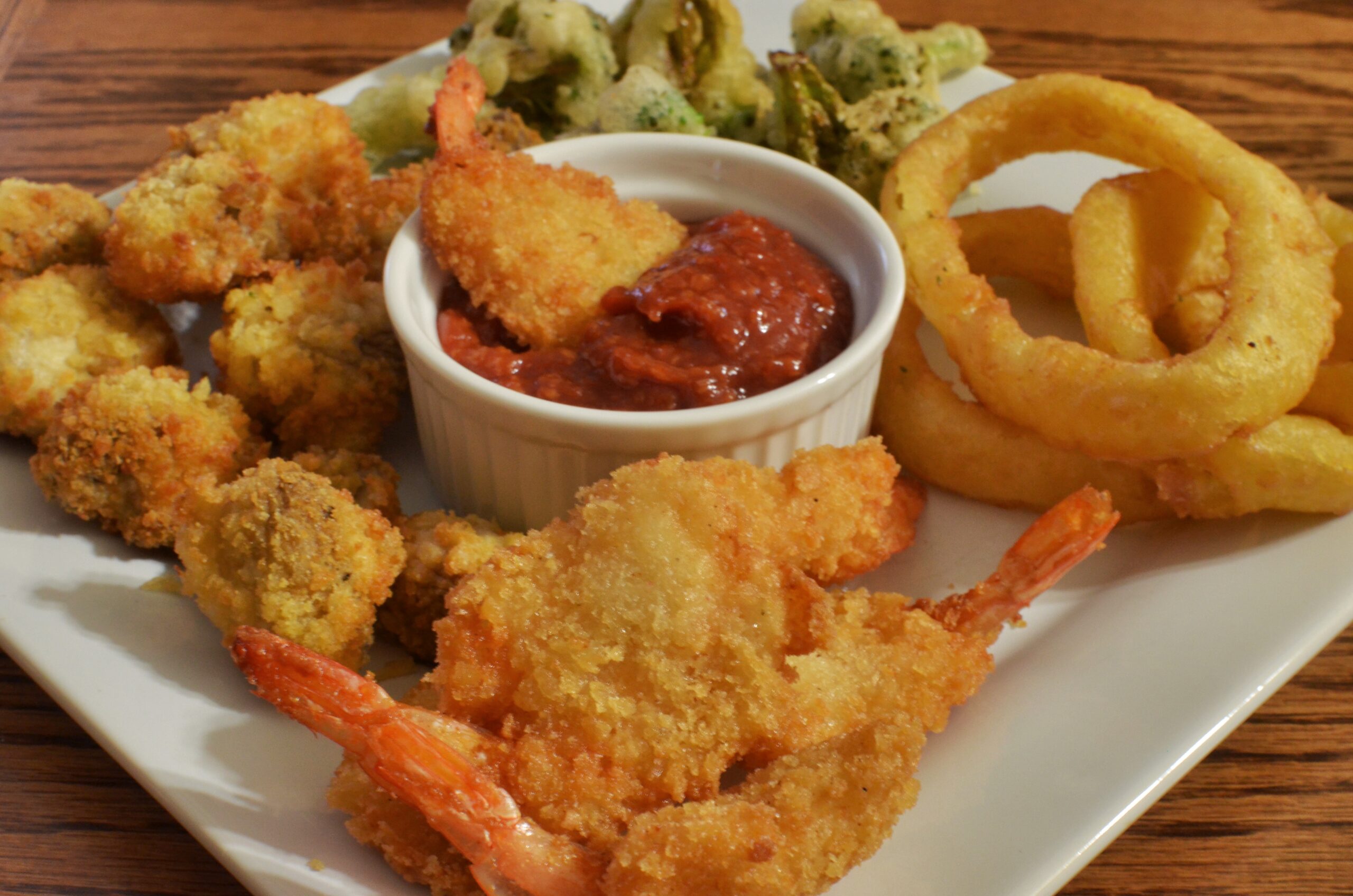
2. **Fried Foods**Fried foods, despite their tempting crunch and flavor, are a significant source of late-night digestive trouble. These items are typically laden with unhealthy fats, which are notoriously slow and difficult for the body to digest. When consumed before bed, these heavy fats force your digestive system to work overtime during a period when it naturally wants to slow down and rest.
This prolonged digestive effort can lead to a cascade of uncomfortable symptoms. You might experience persistent discomfort, a sensation of heaviness, bloating, and an increased risk of acid reflux. The high fat content in fried foods can relax the esophageal sphincter, the muscle that separates your esophagus from your stomach, making it easier for stomach acid to flow back up and cause heartburn.
Feeling heavy, bloated, and restless is precisely what you want to avoid when aiming for quality sleep. As the context highlights, these meals “take a long time to digest and can leave you feeling full, bloated, and restless.” By opting out of fried foods in the evening, you allow your digestive system to work more efficiently, setting the stage for a much more comfortable and undisturbed night’s sleep.
Read more about: Unlock Affordable Wellness: Your Comprehensive Guide to Healthy Home Cooking Without Draining Your Wallet

3. **Caffeinated Beverages**While many instinctively associate caffeine with staying awake, its impact on your gut health, particularly before bed, is equally important to consider. Caffeinated drinks like coffee, certain teas (black or green), and even chocolate are explicitly listed as items that “can keep your gut (and mind) buzzing.” This effect extends beyond just stimulating your brain; it also stimulates your digestive tract.
Caffeine can act as a diuretic and a mild laxative, potentially increasing gut motility. While this might seem benign during the day, at night, it can disrupt the natural processes your body undertakes as it prepares for rest. Instead of winding down, your gut is kept active, leading to potential discomfort or an urge to use the bathroom, further interrupting your sleep cycle.
Furthermore, the stimulating effect of caffeine can delay the natural release of melatonin, your body’s primary sleep hormone. Even if you feel you can fall asleep after a caffeinated drink, the quality of that sleep can be significantly compromised, preventing you from achieving the deep, restorative stages your body needs. Skipping these stimulating beverages ensures both your mind and gut can transition smoothly into rest mode.
Read more about: Where Did They Go? 15 Beloved Snacks That Vanished From Supermarket Shelves – And The Delicious Memories They Left Behind

4. **Citrus Fruits and Juices**Citrus fruits and their juices, such as oranges, grapefruits, and lemons, are lauded for their vitamin C content and refreshing qualities. However, their highly acidic nature makes them a less-than-ideal choice for a late-night snack or beverage. The context directly points out that these are “highly acidic — a common cause of nighttime stomach discomfort.”
Consuming acidic foods or drinks before lying down can exacerbate symptoms like acid reflux and heartburn. When you recline, gravity no longer assists in keeping stomach acid where it belongs, allowing it to more easily flow back into the esophagus. This can lead to that uncomfortable burning sensation, making it difficult to relax and fall asleep.
Beyond heartburn, the acidity can simply irritate a sensitive stomach, causing general unease or mild abdominal pain. While a glass of orange juice might seem light, its acidic properties can be surprisingly disruptive to your digestive peace at night. Opting for less acidic alternatives can make a significant difference in your nocturnal comfort.
Read more about: Sweet Tooth? 10 Healthy Swaps That Are Deliciously Better for Your Heart and Well-being
5. **Carbonated Drinks**The appeal of a fizzy, refreshing carbonated drink might be strong, especially after a meal. However, these beverages are among the items you should definitely skip before sleep if you want to avoid bloating and discomfort. The science is straightforward: “Gas bubbles in your drink = gas bubbles in your belly.” This direct correlation means consuming them before lying down can lead to significant gastric distress.
These trapped gas bubbles can cause an uncomfortable feeling of fullness, distension, and bloating in your abdomen. For anyone prone to tummy troubles, this is a surefire way to induce discomfort that will interfere with sleep. As your body attempts to settle for the night, it will instead be working to process and expel this excess gas.
Furthermore, carbonated drinks can sometimes relax the lower esophageal sphincter, similar to fatty foods, which can increase the risk of acid reflux. The combination of increased gas and a potentially compromised sphincter means a higher chance of heartburn and general digestive upset. Choosing plain water or a calming herbal tea instead can help your digestive system remain peaceful as you prepare for bed.
Read more about: Unlock Affordable Wellness: Your Comprehensive Guide to Healthy Home Cooking Without Draining Your Wallet

6. **Heavy Meals**Defining a “heavy meal” before bed goes beyond just its calorie count; it encompasses the sheer volume and complexity of food that overloads your digestive system. Think large portions of dense, calorie-rich dishes that require extensive digestion. The context explicitly warns that “Heavy or Fatty Meals Take a long time to digest and can leave you feeling full, bloated, and restless.” This highlights the core issue.
When you consume a substantial meal too close to bedtime, your body’s energy is redirected toward digestion rather than winding down for sleep. This means your stomach is working hard when it should be preparing for a period of rest and repair. The physical sensation of a full stomach combined with active digestion makes it incredibly difficult to relax into sleep.
This sustained digestive activity can disrupt your circadian rhythm, which is your body’s natural internal clock that regulates sleep patterns. Instead of transitioning into deep, restorative sleep, you might experience fragmented sleep, waking up frequently or struggling to fall into a deep slumber. Giving your digestive system adequate time to process a meal, and ensuring that meal isn’t excessively heavy, is crucial for promoting truly restful nights.
Read more about: The Culinary Alchemist: 14 Simple Yet Powerful One-Ingredient Kitchen Hacks That Elevate Every Dish

7. **Fatty Meals (High in Unhealthy Fats)**While we’ve already discussed fried foods, it’s important to specifically highlight fatty meals in general, especially those high in unhealthy fats, as a distinct category to avoid before sleep. This includes rich, creamy sauces, certain cuts of meat, and dishes prepared with excessive oils or butter, even if they aren’t fried. The core problem lies in the high-fat content itself.
Foods rich in unhealthy fats are notoriously slow to digest. Your digestive system takes significantly longer to break down fats compared to carbohydrates or proteins. This extended digestion time means that if you eat a fatty meal late at night, your stomach will still be actively working well into your sleep period, preventing your body from fully entering its restorative phase.
Dr. Lobrano includes foods with “saturated fats like cheese or some cured meats” among those that “may cause heartburn or abdominal pain.” These fats can relax the lower esophageal sphincter, increasing the likelihood of stomach acid backing up into the esophagus, leading to uncomfortable acid reflux or heartburn. This discomfort can keep you awake or disrupt the quality of your sleep, making you feel less refreshed in the morning.
Prioritizing lighter, nutrient-rich meals in the evening helps your body process food efficiently, absorb nutrients, and maintain a stable metabolism overnight, all of which contribute to better sleep quality and overall gut comfort. Skipping these heavy, fatty indulgences before bed is a kind gesture to your digestive system and your sleep schedule.
Waking up tired, puffy, or simply uncomfortable is a widespread experience that often leaves us wondering about the root cause. For many, the answer lies in our late-night eating habits. The choices we make before heading to bed can profoundly influence our digestion, the delicate balance of our gut microbiome, and ultimately, the quality of our sleep. It’s a connection more intricate than many realize, with certain foods acting as unwitting saboteurs to our nighttime comfort and morning freshness.
While the topic of late-night snacking itself can be polarizing, with some experts advising against it entirely and others acknowledging its inevitability in our fast-paced lives, one truth remains clear: what you eat matters immensely. If hunger pangs strike, reaching for the right thing is paramount to ensuring you wake up feeling fueled and refreshed, rather than bogged down by acid reflux, bloating, or other digestive woes. Conversely, opting for the wrong foods can transform a peaceful night into one filled with discomfort and disrupted rest, impacting everything from your energy levels to your overall well-being.
To navigate these nocturnal cravings wisely, it’s essential to understand which foods are likely to cause trouble. Drawing on insights from experts like Amy Lobrano, M.D., a gastroenterologist, and Dominique Adair, M.S., R.D., a clinical director, we’ll delve into the specific items that your gut might be asking you to skip. This guide isn’t about rigid restrictions but about making informed, empathetic choices for your body, ensuring your digestive system can wind down properly and you can achieve the restorative sleep you deserve. Let’s uncover the late-night meals and snacks you might want to reconsider for better sleep and digestion.
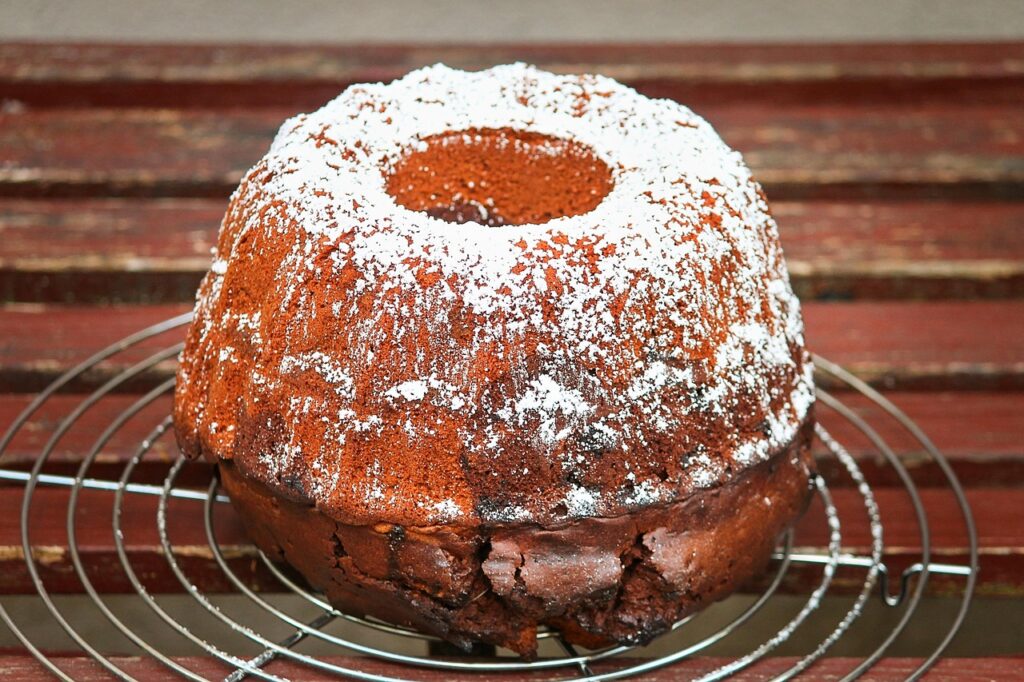
8. **High-Sugar Desserts**That lingering sweet tooth after dinner can be a powerful pull, but indulging in high-sugar desserts before bed is a significant misstep for both your sleep and digestive well-being. Treats like cakes, cookies, or ice cream, while delicious, are packed with simple sugars that can send your blood sugar levels on a rollercoaster ride.
This rapid spike in blood sugar, according to experts, provides a temporary energy boost, quickly followed by a crash. This metabolic turbulence is a common disruptor of deep sleep, potentially waking you up in the middle of the night or making it difficult to fall asleep in the first place. Your body struggles to find a steady state necessary for rest when blood sugar is fluctuating wildly.
Furthermore, these rapid changes in blood sugar can trigger intense cravings later in the night, perpetuating a cycle of disturbed rest and unhealthy eating. Opting for a high-sugar dessert effectively signals your body to stay active rather than wind down, ultimately compromising the quality of your sleep and your morning energy levels.
Read more about: The Midnight Menu No-Gos: 12 Late-Night Snacks That Just Aren’t Worth the Calories or the Regret

9. **Processed Snacks**Reaching for processed snacks like chips, crackers, or packaged sweets for a late-night bite might seem convenient, yet these items can wreak considerable havoc on your gut health. Such snacks are typically loaded with artificial additives, preservatives, and unhealthy fats, all of which can be irritating to your delicate digestive system.
Beyond these concerning ingredients, processed snacks are often notoriously low in fiber and essential nutrients. This lack of beneficial components means they can slow down digestion, contributing to unpleasant bloating, gas, and general discomfort. Your body is then forced to work harder at processing these difficult-to-break-down substances at a time when it should be resting and repairing.
When your digestive system is burdened with processed foods, it becomes significantly more challenging for your body to achieve the restorative sleep it needs. The physical discomfort and the digestive effort actively interfere with your natural sleep cycle, leaving you feeling less refreshed and potentially sluggish the next morning. Choosing whole, unprocessed foods is a kinder approach to your nighttime gut health.
Read more about: Unlock Affordable Wellness: Your Comprehensive Guide to Healthy Home Cooking Without Draining Your Wallet
10. **Refined Carbohydrates**Refined carbohydrates, often found in white bread, pastries, and many packaged foods, are another category to approach with caution when it comes to late-night eating. These are effectively simple carbohydrates or starches that, like high-sugar desserts, can cause a rapid spike in your blood sugar levels, according to Dr. Amy Lobrano.
This swift elevation in blood sugar can provide a fleeting burst of energy, which is precisely the opposite of what your body needs as it prepares for sleep. Following this spike, a subsequent crash can occur, potentially leading to insomnia or disturbed sleep patterns. Your body’s internal clock struggles to regulate when faced with such quick energy fluctuations.
Dr. Lobrano specifically recommends avoiding foods high in simple carbohydrates or starches, such as chips or cookies, before bed because they may spike blood sugar and lead to insomnia. Opting for complex carbohydrates, such as those found in whole grains or sweet potatoes, offers a more stable release of energy and is a far better choice for maintaining balanced blood sugar overnight.
Read more about: Eating Your Way to Wrinkles? Doctors Reveal 10 Foods Secretly Aging You Faster

11. **Acidic Foods**While citrus fruits were previously highlighted, it’s crucial to understand that a broader range of acidic foods can be equally problematic for nighttime digestion. Dr. Lobrano notes that “Acidic foods… may cause heartburn or abdominal pain.” This category extends beyond just citrus to include various other items that can irritate the stomach lining when consumed too close to bedtime.
When you lie down, gravity no longer helps keep stomach acid in its rightful place. Consequently, if your stomach is full of acidic foods, the likelihood of acid reflux or heartburn significantly increases. This uncomfortable burning sensation can be a major impediment to falling asleep and maintaining a restful state throughout the night.
Consuming acidic foods can also simply irritate a sensitive stomach, leading to general unease or mild abdominal pain, even without full-blown reflux. Therefore, being mindful of the overall acidity of your late-night food choices is a critical step in preventing nighttime stomach discomfort and ensuring a peaceful transition to sleep.
Read more about: 12 Common Habits Your Dentist Secretly Wishes You’d Stop Doing for a Healthier Smile
12. **Cured Meats**Cured meats, such as bacon, sausage, or certain deli meats, are often tempting but should be largely avoided as a late-night meal component. These items are typically high in saturated fats, which, as Dr. Lobrano points out, “may cause heartburn or abdominal pain.” This high fat content makes them particularly difficult for your digestive system to process efficiently.
The digestion of saturated fats is a slow and arduous process for the body. When you consume cured meats before bed, your digestive system is forced to work overtime during a period when it should be winding down. This prolonged digestive activity can lead to feelings of heaviness, discomfort, and bloating, making it challenging to relax into sleep.
Moreover, the high fat content in cured meats can relax the lower esophageal sphincter, the muscular valve that prevents stomach acid from flowing back into the esophagus. This relaxation heightens the risk of experiencing acid reflux and heartburn, symptoms that are guaranteed to disrupt your sleep and leave you feeling less than refreshed in the morning.
Read more about: Pouring a Perfect Catch: 10 Wine Pairings with Seafood That Sommeliers Really Wish You’d Avoid
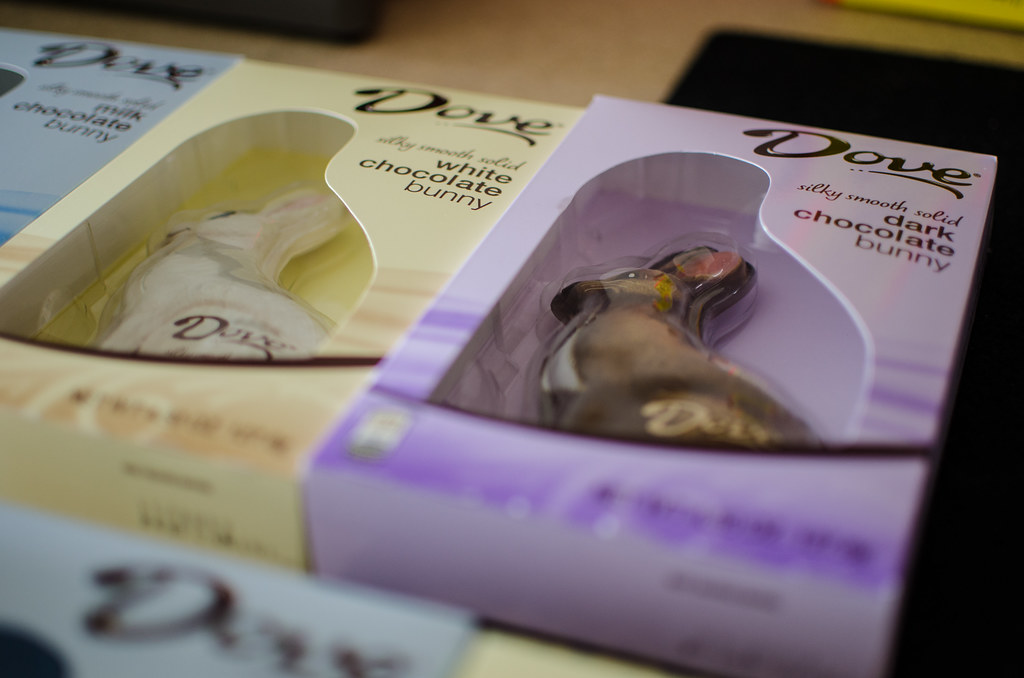
13. **Chocolate**While often enjoyed as a comforting treat, chocolate, especially in darker or larger quantities, can be a surprising saboteur of a peaceful night’s sleep. It’s not just a sweet indulgence; chocolate contains compounds, including caffeine and theobromine, which are stimulants.
As the context highlights, “Caffeinated drinks… and even chocolate can keep your gut (and mind) buzzing.” This stimulating effect extends beyond just your brain, actively encouraging your digestive system to remain active. Instead of winding down, your gut is kept in a state of heightened activity, which can lead to discomfort or disrupt the natural process of preparing for rest.
Even if you believe you can fall asleep after eating chocolate, its stimulating properties can interfere with the quality of your sleep, preventing you from reaching the deeper, more restorative stages. For a truly restful night, it’s best to keep chocolate out of your late-night snack rotation, allowing both your mind and gut to fully relax.
Read more about: Sudden Exit: 14 Beloved Eateries Who Vanished From Main Street — And The Resilience of Those That Made A Comeback
14. **Overly Large Portions**The sheer quantity of food consumed, rather than just the type, plays a pivotal role in determining your nighttime comfort. Eating “overly large portions” before bed can significantly overwhelm your digestive system, leading to a cascade of uncomfortable symptoms that directly interfere with sleep quality. Dominique Adair advises aiming for lighter, balanced, yet satisfying snacks if eating late disturbs your sleep.
Dr. Lobrano concurs, recommending that late-night snacks be kept “around or below 300 calories.” The objective, as Adair states, is “to nourish and satisfy without overloading your digestion before sleep.” When you consume too much food, your body’s energy is redirected toward a prolonged and arduous digestive effort, rather than winding down for rest and repair.
This sustained digestive activity and the physical sensation of a full, distended stomach make it incredibly difficult to relax and fall into a deep sleep. It can disrupt your body’s natural circadian rhythm, potentially leading to fragmented sleep or difficulty achieving restorative rest. Mindful portion control is therefore essential for promoting comfortable digestion and truly restful nights.
Read more about: Shifting Gears: 11 Classic 1990s Cars That Are Now Highly Collectible

15. **The Critical Role of Meal Timing**Beyond what you eat, *when* you eat is arguably just as important for promoting optimal digestion and ensuring a restful night’s sleep. Consuming food too close to bedtime can lead to significant digestive discomfort and disrupt your natural sleep cycle, creating a ripple effect on your overall well-being.
Dr. Lobrano emphasizes that “it’s more difficult to digest food while in a reclined or recumbent position.” Gravity plays a crucial role in digestion while you’re upright, so eating just before lying down means your digestive system has to work against this natural aid. This can cause food to sit in your stomach longer, leading to indigestion, bloating, and an increased risk of acid reflux.
Experts generally recommend finishing your last meal “at least two hours before bedtime,” with some advising 2-3 hours. This allows your digestive system ample time to break down food and empty the stomach efficiently before your body prepares for rest. Proper timing helps your body transition into repair mode rather than focusing on digestion, supporting a smoother path to restorative sleep.
Furthermore, late-night eating can disrupt your circadian rhythm, the body’s internal clock that regulates sleep patterns. Fragmented sleep and digestive discomfort are common outcomes, impacting your ability to achieve the deep, healing sleep your body needs. Mindful meal timing is a powerful, yet often overlooked, strategy for nurturing both a healthy gut and quality sleep.
Read more about: Unveiling the Past: Why Local History Tours Are Captivating a New Generation of Travelers
By being mindful of these late-night food choices and paying attention to meal timing, you can truly transform your evenings and mornings. Small, informed decisions about what and when you eat can make a monumental difference in preventing bloating, easing digestive fuss, and securing the restorative sleep you deserve. Your gut, and your whole body, will thank you for this renewed kindness.


